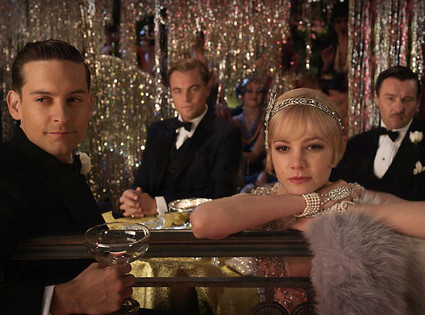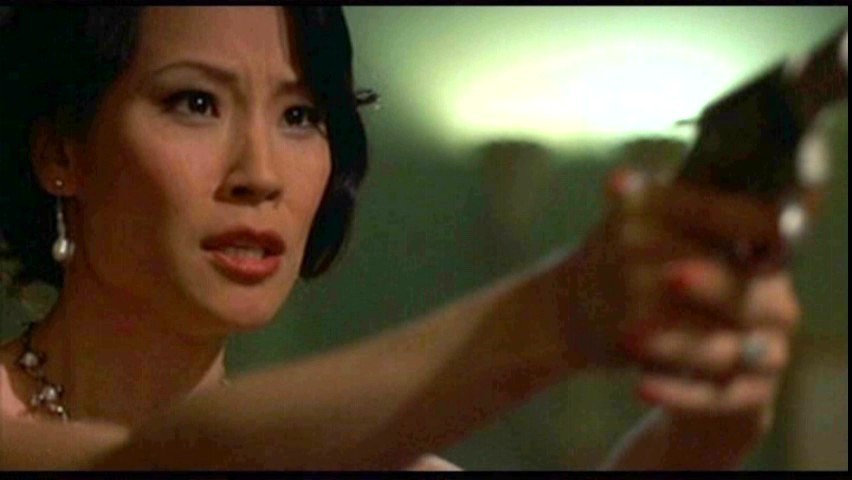 Hollywood first began working its way to fame in the early 1900's. In fact, it was originally a ranch named after the English holly and woods when Thomas Lincoln Tally built an Electric Theater where tickets were sold for ten-cents a pop. Overtime, the Electric Theater grew from black and white to color, just like the ranch around it developed from a ranch to a city in 1910. Hollywood's diverse landscapes and predictable weather began to attract numerous film producers and screen writes which severely expanded the city's film reputation. Nowadays, Hollywood represents the "land of dreams:" where fame is inevitable, and film agents are on every corner just waiting to discover you. In this sense, Hollywood has become a symbol of the American Dream; a continued promise for glory that is known and hoped for by everyone, but only attained by few. The dream of "making it" is fueled by the overexposure of those who do so. Harrison Ford for example, began in Hollywood as a self-taught carpenter and was discovered by George Lucas while furnishing his cabinets. After being placed in some minor roles by Lucas, Ford finally gained his Super-Star title through his role as Han Solo in the George Lucas film: Star Wars. However, Ford's quick fame was not only a pivoting moment for him, but also for the thousands of other undiscovered Californians who were provided with new hope of their own "inevitable" fame.
Hollywood first began working its way to fame in the early 1900's. In fact, it was originally a ranch named after the English holly and woods when Thomas Lincoln Tally built an Electric Theater where tickets were sold for ten-cents a pop. Overtime, the Electric Theater grew from black and white to color, just like the ranch around it developed from a ranch to a city in 1910. Hollywood's diverse landscapes and predictable weather began to attract numerous film producers and screen writes which severely expanded the city's film reputation. Nowadays, Hollywood represents the "land of dreams:" where fame is inevitable, and film agents are on every corner just waiting to discover you. In this sense, Hollywood has become a symbol of the American Dream; a continued promise for glory that is known and hoped for by everyone, but only attained by few. The dream of "making it" is fueled by the overexposure of those who do so. Harrison Ford for example, began in Hollywood as a self-taught carpenter and was discovered by George Lucas while furnishing his cabinets. After being placed in some minor roles by Lucas, Ford finally gained his Super-Star title through his role as Han Solo in the George Lucas film: Star Wars. However, Ford's quick fame was not only a pivoting moment for him, but also for the thousands of other undiscovered Californians who were provided with new hope of their own "inevitable" fame.  Hollywood not only has the ability to manipulate our hopes, but also has the ability to manipulate our social normalities. During the 1930's, the MPPDA or, the Motion Pictures Producers and Distributors Association, created a strict guideline on what they considered was appropriate for American audiences to see. These "guidelines" however, proved to modify the silver screen into a world of perfection rather than a world of realism: " There the flawed became whole, the blind sighted, and the lame and halt threw away their crutches" (122). As a result, the movies became the only place in the world where the American Dream of perfection, prosperity, and opportunity was real. The movie's perfection began to influence it's audiences, especially those in poverty. By continuously observing the "Happily Ever After" scenarios, members in the audience began to connect a character's looks and mannerism to his or her success. This connection led to a mindset in which one's beauty was equivalent to one's worth in life. Even today, movies such as "Pretty Woman" are produced which promote the idea of successful beauties. "Pretty Woman" revolves around a Cinderella-esque circumstance in which a stunningly beautiful prostitute meets her "knight... on a white horse with these colors flying" and becomes wealthy and happy for the rest of her life. Originally, the friend of Vivian Ward, the prostitute in "Pretty Woman", makes fun of Vivian for even considering that she might have a future with the millionaire Richard Gene, when she compares Vivian to "Cindafunkin'rella."
Hollywood not only has the ability to manipulate our hopes, but also has the ability to manipulate our social normalities. During the 1930's, the MPPDA or, the Motion Pictures Producers and Distributors Association, created a strict guideline on what they considered was appropriate for American audiences to see. These "guidelines" however, proved to modify the silver screen into a world of perfection rather than a world of realism: " There the flawed became whole, the blind sighted, and the lame and halt threw away their crutches" (122). As a result, the movies became the only place in the world where the American Dream of perfection, prosperity, and opportunity was real. The movie's perfection began to influence it's audiences, especially those in poverty. By continuously observing the "Happily Ever After" scenarios, members in the audience began to connect a character's looks and mannerism to his or her success. This connection led to a mindset in which one's beauty was equivalent to one's worth in life. Even today, movies such as "Pretty Woman" are produced which promote the idea of successful beauties. "Pretty Woman" revolves around a Cinderella-esque circumstance in which a stunningly beautiful prostitute meets her "knight... on a white horse with these colors flying" and becomes wealthy and happy for the rest of her life. Originally, the friend of Vivian Ward, the prostitute in "Pretty Woman", makes fun of Vivian for even considering that she might have a future with the millionaire Richard Gene, when she compares Vivian to "Cindafunkin'rella."However, by making the "Cindafunkin'rella"scenario come true, the producers of "Pretty Woman" are putting a realistic twist on a false promise that all good opportunities come from looks: specifically Caucasian looks.
 In the novel The Bluest Eyes, Pauline's ideals about herself and others are distorted because of the unrealistic social normalities that are taught through the camera. Indeed, Pauline makes it very clear to the reader that before her "education in the movies," she loved Cholly and was content with her life and all of it's hardships (122). In fact, it was only after she watched the silver screen that she began to become discontent with her life because she began to compare her world to the unobtainable world of the movies. Consequently, as the comparison or, "the most destructive ideas of human thought," slowly insinuated her mind with the realization that her life was not perfect, it became harder and harder for Pauline to "come home" from the fantasy world (122). This realization could even be why Pauline became obsessed with her white people. The white family was the closest connection she had to newly desired dream world: they gave her a sense of white security and white power that her own family could not offer her. However, this decision, or rather, this need for the perfection and security of the white world just made her more miserable when it was time to come back to reality. Hence, the movies created a catch twenty-two for Pauline: by continuously dreaming to have white perfection, she began to despise her reality which only made her love of unreality increase. This mindset caused her to distance her self in every way possible from her family: her home became a house, her family became sources of sin and anger, and she erased all memories from her "black" possessions. As a result, her identity, her blackness, and her funk was gone. In conclusion, the idea that her life could be better if only she became white, caused Pauline's life to become an empty shell, whereas "she absorbed in full...the silver screen" (122).
In the novel The Bluest Eyes, Pauline's ideals about herself and others are distorted because of the unrealistic social normalities that are taught through the camera. Indeed, Pauline makes it very clear to the reader that before her "education in the movies," she loved Cholly and was content with her life and all of it's hardships (122). In fact, it was only after she watched the silver screen that she began to become discontent with her life because she began to compare her world to the unobtainable world of the movies. Consequently, as the comparison or, "the most destructive ideas of human thought," slowly insinuated her mind with the realization that her life was not perfect, it became harder and harder for Pauline to "come home" from the fantasy world (122). This realization could even be why Pauline became obsessed with her white people. The white family was the closest connection she had to newly desired dream world: they gave her a sense of white security and white power that her own family could not offer her. However, this decision, or rather, this need for the perfection and security of the white world just made her more miserable when it was time to come back to reality. Hence, the movies created a catch twenty-two for Pauline: by continuously dreaming to have white perfection, she began to despise her reality which only made her love of unreality increase. This mindset caused her to distance her self in every way possible from her family: her home became a house, her family became sources of sin and anger, and she erased all memories from her "black" possessions. As a result, her identity, her blackness, and her funk was gone. In conclusion, the idea that her life could be better if only she became white, caused Pauline's life to become an empty shell, whereas "she absorbed in full...the silver screen" (122).





















